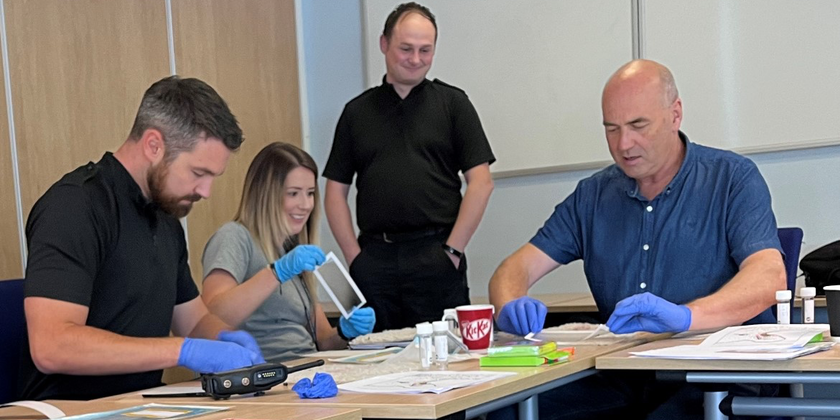Pioneering DNA research project from North Wales Police to aid livestock attack investigations

A pioneering collaboration between North Wales Police and a forensic research team will help to provide invaluable support to future livestock attack investigations.
Dog attacks on livestock continue to blight rural communities and were estimated to have cost British farmers £1.52 million last year, according to industry data.
With funding provided by DEFRA, North Wales officers have teamed up with scientists at Liverpool John Moores University to implement a DNA-based investigation process to identify dogs suspected to have committed such attacks.
As part of an ongoing research project that began in 2021, Rural Crime Team officers investigating these incidents have gathered swab samples from injured and deceased livestock at crime scenes.
Collected samples are then sent on to university researchers, whose work attempts to isolate the DNA of the canine involved.
It is hoped that the results will enable police forces, and forensic science services across Wales and England, to employ best DNA practice when dealing with livestock attacks under the new powers proposed in the Kept Animals Bill.
The government-backed legislation is currently making its way through Parliament and will cover the whole of Wales and England.
It is the result of several years of work from key stakeholders, including NPCC Livestock Offences Group, farming unions, animal welfare groups and DEFRA.
Under the proposed legislation, officers will have the power to collect DNA samples from both livestock and dogs suspected of committing an attack.
DNA samples will only be taken where evidence at the scene suggests a particular dog may be responsible, it is not a proposal for a national dog DNA database.

The new Act would also provide increased seizure powers for officers; strengthen the court’s position to disqualify dog owners from keeping other dogs, and expand the number of livestock species and grazing areas covered within the legislation.
RCT Officer and NPCC Secretary for Livestock Offences, Dave Allen hopes that his team’s work will yield positive results and that other forces can adopt the same processes in future investigations.
He said: “On average in North Wales there are around 120 dog attacks on livestock per year.
“Most of these are committed by dogs that have escaped from their homes and many of these incidents involve attacks on sheep.
“Each year I see incidents where farmers lose thousands of pounds of their livelihood after becoming a victim of a livestock attack.
“But the current legislation was passed in 1953 and reflects poorly on modern farming and police techniques.
“For example, the police must give a dog suspected of an attack back to the owner if one is identified and animals such as Alpacas are not covered under the 1953 Act.
“Currently, under the 1953 Act, identifying the dog involved can be difficult in those circumstances so, over the last 12 months, RCT officers have collected a number of swab samples from livestock that have been attacked by dogs.
“However, these swabs are not currently admissible as evidence in court, as there is no such law in place yet.
“But by submitting them to the forensic research team they can hone techniques to isolate the canine DNA, which ultimately improves our chances of tracing the owners responsible.
“This could then provide the platform for science and police guidance to be in place when the new Act becomes law.
“This is an exciting project and one that hasn’t been done anywhere else in the UK previously.”
Efforts to establish the best means for DNA extraction from livestock remains a priority as the project enters its second phase.
RCT officers recently attended a workshop led by molecular forensics specialists, Dr Nick Dawnay and Dr Suzzanne McColl from LJMU.
Dr Dawnay provided an overview of work undertaken to date, with further discussions around the efficacy of swabbing versus other methods.
Practical sessions saw the officers attempt ‘taping’ techniques, which involved taking mock samples from material using acetate strips.
Officers were also given guidance on sampling methods and advised on the optimal sites from which to obtain canine DNA from an attacked animal.
Spotted something? Got a story? Email: [email protected]
Latest News
